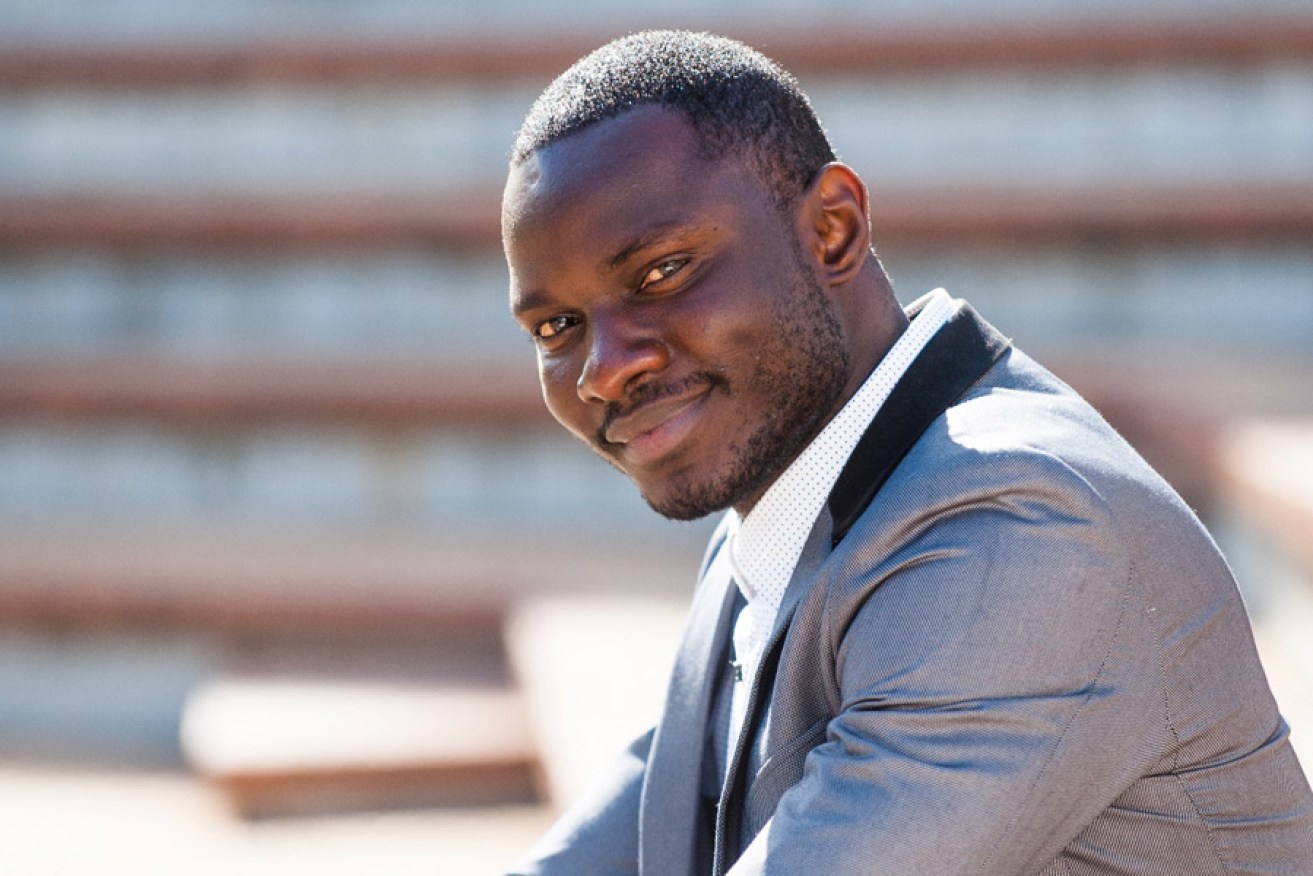Former Liberian refugee Shedrick Yarkpai is not just an actor in the State Theatre Company of SA’s new play, he’s also part of the story behind it.
Maggie Stone centres on a hard-bitten loans officer and her debt-plagued African refugee client Amath, whose husband Prosper and son Benedict are both played by Yarkpai.
The actor, who arrived in Adelaide in 2005 after fleeing the violence in his home country and spending five years in refugee camps, says SA playwright Caleb Lewis’s contemporary script resonates with his own experience and that of other immigrants.
“He [Prosper] has had a lot of struggles in Africa in a refugee camp and had the chance to come to Australia for a new life, and when he comes to Australia he finds a lot of difficulties in settling in and trying to impress people that are back home.
“There’s a big impression that once you come to Australia, life here is easy for you … they [people back home] think it’s like heaven.”
In the play, Prosper gets into serious debt and ends up owing money to a loan shark. Like his character, Yarkpai says he regularly sends money to help his mother, siblings and other family members back in Liberia and has struggled financially himself.
“This story is very true. It relates to a lot of African migrants in Australia … they have debt of some kind.
“Where you come from, you know how hard it is there,” he adds, explaining the pressure to send money home. “When someone calls and says they are sick, you know how hard it is in a refugee camp.”
At the time Yarkpai left Liberia, the country was extremely unstable after 15 years of civil war. Fearful that her son would become one of the young men grabbed off the street by authorities and taken to the frontline to fight, his mother urged him to leave, initially with the belief he could go to America under the American Resettlement Program.
“I was a young man going to high school and I felt a lot of pressure and tension to be violent,” Yarkpai says of Liberia.
“That was the thing of the day – if you weren’t violent, you were the victim. As a young man, I could have easily become part of the bad people.”
Instead, he ended up in a refugee camp on the Ivory Coast. When the American Resettlement Program was stopped and war broke out on the Ivory Coast, he was sent to another refugee camp in the middle of the forest in Guinea, where he went days without food, slept on the floor and suffered malaria.
Yarkpai’s luck finally turned when he was given a permanent residency humanitarian visa enabling him to live in Australia.
One positive from his refugee camp experience was that his involvement with a program educating young people about the prevention of HIV and other infectious diseases led to him writing and performing in a play called Behavioural Change.
His acting journey continued after he arrived in Adelaide and answered a call from the Norwood-based Independent Theatre seeking African actors.
“I played Reverend Msimangu in Cry, The Beloved Country. It was electrifying.”
Yarkpai has since played the lead in a number of other Independent Theatre productions, including Othello, and worked with the company’s Rob Croser and David Roach to develope a performance piece with African refugee teenagers in which they described their experiences of coming to Australia.
He says when he arrived in Adelaide, most people were welcoming and friendly.
“People seemed very smiley and always happy.
“But later on, the more I lived here, I saw some people were not very kind … a few times walking down the street people yelled out the n-word to me. Some people say, ‘Go back to your country’.
“But among normal everyday Australians, people have been nice.”
He believes theatre is a powerful medium for helping people understand the experiences of immigrants to this country, but laments the fact that more people don’t go to see plays.
“That’s when you see the characters on stage, face to face, eye to eye. We need more people to come to the theatre because it’s one of the great ways to teach people the issues they need to learn about, such as racism … it’s the best way of portraying that sort of message to the audience.”
Maggie Stone officially opens on November 12 at the Space Theatre, with previews from this Friday.





